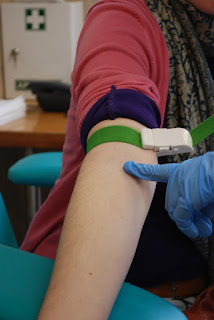Although they may be heavy and burdensome to carry around in your pocket or wallet, coins are still indispensable parts of the whole buying and selling cycle. And even if most of the loose changes you have probably go directly to your piggy bank and you tend to forget about them overtime, coins have also played an important role in histories in different parts of the world.
Below are some interesting facts about coins from various parts of the globe:
• In 1252, the first gold coins were minted in Florence, Italy. It was first called the fiorino, then as the florence, and eventually, the florin.
• In 1989, The Bank of Canada issued the last $1 bill. The dollar bill’s departure was preceded in 1987 by the arrival of the dollar coin, affectionately known in the world as the loonie.
• Numismatics refers to the scientific study of coins. This term is derived from the Greek word nomisma, meaning a coin or a currency in English.
• The first official international convention for coin collectors was held from August 15 to 18, 1962, in Detroit, Michigan. It was sponsored by the American Numismatic Association and the Canadian Numismatic Association. Around 40,000 coin enthusiast attended this convention.
• Ever wondered about the musty, "metallic" odour you smell after handling coins? A study found out that the smell of iron is a type of human body odour, created by the breakdown of oils in the skin after touching objects that contain metallic or iron elements. When you touch objects made of iron, perspiration from your skin causes the iron atoms to gain two electrons. The doubly negative iron atoms react with oil in the skin, causing them to decompose and form 1-octen-2-one – the metallic-smelling substance.
Info source: www.business.hsbc.ae
Below are some interesting facts about coins from various parts of the globe:
• In 1252, the first gold coins were minted in Florence, Italy. It was first called the fiorino, then as the florence, and eventually, the florin.
• In 1989, The Bank of Canada issued the last $1 bill. The dollar bill’s departure was preceded in 1987 by the arrival of the dollar coin, affectionately known in the world as the loonie.
• Numismatics refers to the scientific study of coins. This term is derived from the Greek word nomisma, meaning a coin or a currency in English.
• The first official international convention for coin collectors was held from August 15 to 18, 1962, in Detroit, Michigan. It was sponsored by the American Numismatic Association and the Canadian Numismatic Association. Around 40,000 coin enthusiast attended this convention.
• Ever wondered about the musty, "metallic" odour you smell after handling coins? A study found out that the smell of iron is a type of human body odour, created by the breakdown of oils in the skin after touching objects that contain metallic or iron elements. When you touch objects made of iron, perspiration from your skin causes the iron atoms to gain two electrons. The doubly negative iron atoms react with oil in the skin, causing them to decompose and form 1-octen-2-one – the metallic-smelling substance.
Info source: www.business.hsbc.ae































